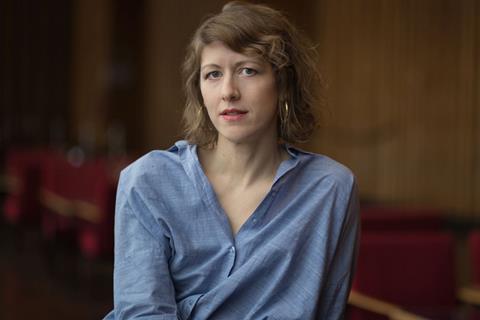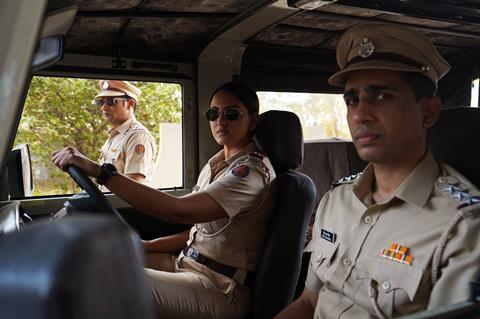
Back in 2015, Berlin became the first A list festival to launch a strand for high-end TV shows, acknowledging changing viewing patterns and the growth of long-form storytelling.
A festival within a festival, Berlinale Series has since become a microcosm of the competitive world of high-end TV shows, where key trends shaping the sector can be observed.
This year’s eight-strong selection, for example, has a raft of streamer titles jostling for attention – from HBO Max’s Cold War thriller Spy/Master to Disney Plus’s mafia tale The Good Mothers, Stan’s coming of age tale Bad Behaviour, iQuiyi’s Why Try to Change Me Now which is directed by Berlinale Silver Bear winner Dalei Zhang, and Viaplay’s satire The Architect.

There are also big budget co-productions from traditional broadcasters, like eco-thriller The Swarm, whose funders include ZDF, France Télévisions, Rai, ORF and SRF. And there are more modestly budgeted broadcaster titles, such as Danish comedy Agent, backed by TV2.
The selection is global too, with series competing for the first time from India (Dahaad (Roar)), Romania (Spy/Master) and China (Why Try to Change Me Now).
Head of Berlinale Series Julia Fidel, who has curated the section for the past four years, says that Asia has been a source of interesting titles this year. India, in particular, has submitted some strong series for consideration, a reflection of the increased investment in high-end TV by both international streamers and Indian broadcasters.
Series themes
Thematically, concerns about the future and the climate crisis are widely reflected in the selection, says Fidel. “This is something that you will find in our programme, but you will see popping up everywhere next year with major streamers and with local broadcasters.” The Architect, for example, depicts a hypergentrified future where cities are too expensive for the young to live in. Meanwhile, humanity is attacked by an unknown intelligence in Berlinale Series opener The Swarm.

Elsewhere, female protagonists are centre-stage. Dahaad (Roar) has a young, emancipated policewoman ask uncomfortable questions about society’s treatment of women. In The Good Mothers the focus is on the wives and daughters of the mafia.
Fidel senses that fewer shows are now being made now by the big streamers compared to the boom period immediately after the pandemic, but that the overall quality of those being produced is strong.
“During the pandemic, you could see that a lot of things were done very quickly. And there was a thirst for more shows, so a lot of things were produced very quickly. This is something that has now stopped – and I don’t think that’s necessarily a bad development.”
She also reckons that bigger budget shows are less experimental than they were pre-pandemic, certainly compared to series such as Netflix’s ambitious genre-hopping Cary Fukunaga-directed 2018 drama Maniac. “You can tell that people have to play things a little bit more safely, that they have to become a bit more sustainable with their planning, and they have to rely on strong IPs. They have to be creative within a certain framework.”
That’s not to say there is no experimentation with TV drama, it’s just happening without the “crazy budgets” that it used to, she says.
The titles playing in Berlinale Series will compete for the inaugural Berlinale Series Award. It’s the first time a prize is being awarded specifically for series at an A-list film festival. Will other festivals follow suit?







![The Brightest SunScreen[Courtesy HKIFF]](https://d1nslcd7m2225b.cloudfront.net/Pictures/274x183/3/5/0/1448350_thebrightestsunscreencourtesyhkiff_312678.jpg)

















No comments yet